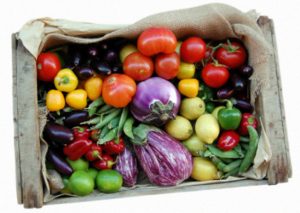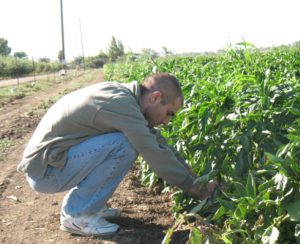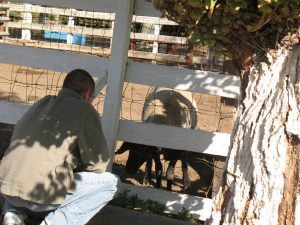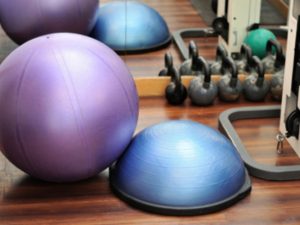Cooking and Nutrition
 Cleaning and preparing food for our own consumption as a group
Cleaning and preparing food for our own consumption as a group- Learning the use of simple/complex kitchen items (toaster, microwave, mixers, blenders)
- Planning a meal and setting tables
- Cleaning and serving other clients
- Learning about the nutritional value of food
- Recycling paper and plastic products
- Creating compost with food waste
- Creating food product to sell such as vinegars, jams, flavored olive oils
Objectives:
- Learn about safety and use of kitchen tools.
- Create food that clients have grown and harvested, “From seed to table”
- Foster an understanding of nutrition and health
- Develop programming around each client’s strengths
Horticulture Program
 Grow edible foods, from seed to harvest
Grow edible foods, from seed to harvest- Maintain flower and herb gardens
- Make compost out of organic waste
- Grounds Keeping: raking and gathering, using equipment that would help to maintain the property
- Use and maintenance of gardening equipment
- Propagate, transport of seedlings
- Working with equipment to create rows or beds for plants, preparing the soil, sowing the seeds.
- Weeding, watering, pinching, pruning and harvesting
- Bunching and labeling product to take to market (such as Community Sustainable Agriculture, Farmers Market or Restaurants
Objectives:
- Focus on task completion with measurable results
- Meaningful activities that are challenging and instructive, identifying clients “abilities”
- Providing structure and Routine with daily farm chores
- Working on fine and gross motor skills with intentional activities
Animal Therapy
 Feed and care for animals
Feed and care for animals- Carry, store and fill bins of feed
- Cleaning animal stalls daily
- Maintaining and dispersing composting into piles and garden
- Maintaining and cleaning barn areas, fences and pastures
- Collect eggs
- Grooming animals, brushing, washing, shearing for wool
Objectives:
- Clients will earn routines as they care for the daily chores on a working Ranch
- Having clients become more observational in their environment by asking the questions, “Why?”, “Where?”, “How come?” and “What’s next?”
Art Therapy
 Work with clay, paint, wood and other craft ideas for therapeutic purposes
Work with clay, paint, wood and other craft ideas for therapeutic purposes- Work with art mediums for purposes of resale or fundraising events such as yearly fairs or an Open House
- Woodworking: outdoor plant frames, birdhouses, raised beds, furniture
- Pottery and ceramics
- Candle making
- Working with dried flowers and vegetation
Objectives:
- To foster an appreciation for the process of creativity, while helping the client find an interest in certain art mediums as they are offered different opportunities.
- For clients to learn to follow simple or more complex instructions based on their abilities.
- Create a product that can be sold for monetary purpose, and personal satisfaction. Potential Job Skills Training.
Learning Center
 Computer and Internet Skills
Computer and Internet Skills- Word Processing and Computer Games
- Picture Communication
- Reading and Vocabulary Skills
- Math and Money Skills
- Writing Skills
- Learning to use CDs, VCRs, DVDs
Objectives:
- Offer the clients educational opportunities so that growth can continue in the Math/ Reading areas.
- Offer clients a comprehensive program including opportunities for them to advance their technological skills.
- Help clients broaden their interests in using and understanding the internet.
Occupational Therapy Program
 Daily Sensory Diet for each client that provides specific calming or energy affecting input that will help with the overwhelming stimulus in an Autistic Adults day
Daily Sensory Diet for each client that provides specific calming or energy affecting input that will help with the overwhelming stimulus in an Autistic Adults day- Use of Sheet swings, Bends, Beanbag chairs, trampoline, weighted materials
- Brushing Techniques
- Auditory Therapy, Headphones, Rhythmic/Calming Music
- Sensorimotor Groups
- Yoga/Exercise/Dance Groups
- Isometric exercises
- State of the Art Occupational Therapeutic Setting
Objectives:
- To offer clients many different modalities to handle their daily sensory input.
- To create for each client an individual balanced program based on their specific needs. (Some adults will need more stimulus as others will need less.)